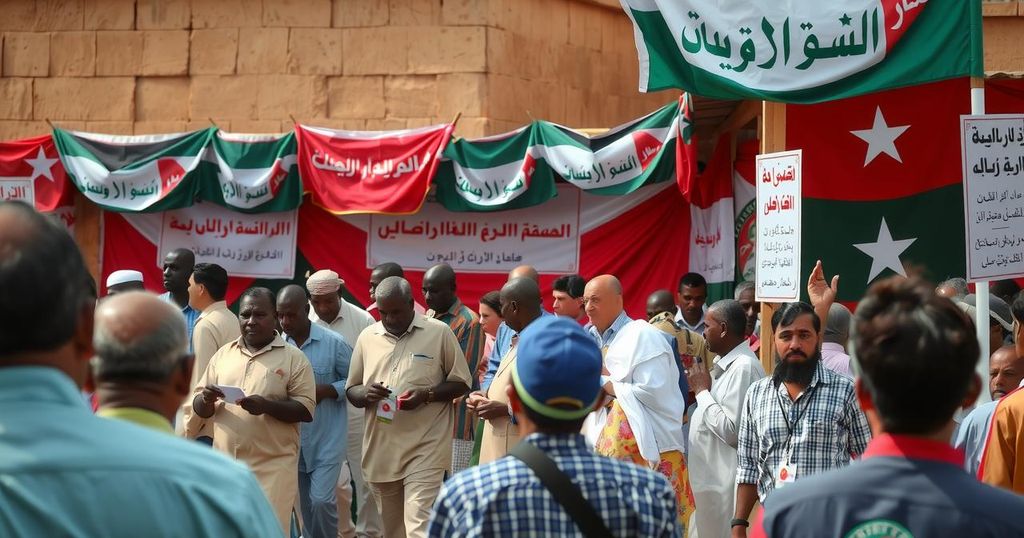Chad Elections Commence Amid Opposition Boycott Appeals

Voting in Chad has started, but opposition parties are urging a boycott, claiming the elections serve only to reinforce the ruling government’s power. Early voting occurred for military personnel and nomadic tribes, while public sentiment reflects indifference towards the elections. The government insists these elections are a significant step towards democratization, although major concerns about electoral integrity persist.
Voting has commenced in Chad amid widespread calls from opposition parties for a boycott, labeling the elections as a deceptive effort to strengthen the ruling party’s hold on power. President Mahamat Idriss Deby Itno has characterized these elections as a pivotal move towards democratization, despite the significant absence of opposition participation. Initial reports indicate that military personnel and nomadic tribes were encouraged to vote early for logistical reasons, while the general populace is set to cast their ballots on Sunday for various governmental positions.
In the capital, N’Djamena, many citizens expressed a sense of indifference regarding the electoral process. The prevailing sentiment is one of skepticism about meaningful change, with individuals focusing on pressing issues such as the high cost of living and rampant corruption. “They believe that the ruling party is going to win no matter what,” reported Al Jazeera’s Catherine Soi. The opposition, particularly the Transformers party, has taken a firm stance against the elections, urging citizens to stay home and abstain from voting.
By midday Saturday, about 45 percent of nomadic tribespeople and military members had already participated in the voting process, with officials reporting normal operations at polling stations. Nevertheless, the backdrop of these elections is fraught with unrest, including ongoing threats from the Boko Haram insurgency and recently severed military ties with France, Chad’s former colonial power. Political analysts remark that while these elections signify a closure to a prolonged transitional phase, they are heavily scrutinized and viewed as beneficial to the governing Patriotic Salvation Movement (MPS). Overall, there are significant concerns regarding the integrity of the electoral process amid allegations of bias within the electoral management body.
The political context surrounding the elections in Chad is complex, as it follows the death of longtime ruler Idriss Deby Itno in 2021 and the subsequent ascension of his son, Mahamat Idriss Deby Itno, to power. The government has promoted the elections as critical for establishing democratic governance, yet opposition forces contend that the elections lack legitimacy due to alleged state control and manipulation of the electoral process. With a history of political unrest and civil discontent, the populace appears disengaged, reflecting a broader frustration towards the political status quo.
In summary, the ongoing elections in Chad are marked by significant opposition to the process, with many citizens expressing doubt about the potential for change and the integrity of the electoral system. Despite government assurances about a transition towards democracy, the electorate remains largely skeptical. The unfolding events reveal underlying tensions in Chad’s political landscape, as citizens navigate issues of governance, corruption, and regional security challenges.
Original Source: www.aljazeera.com








